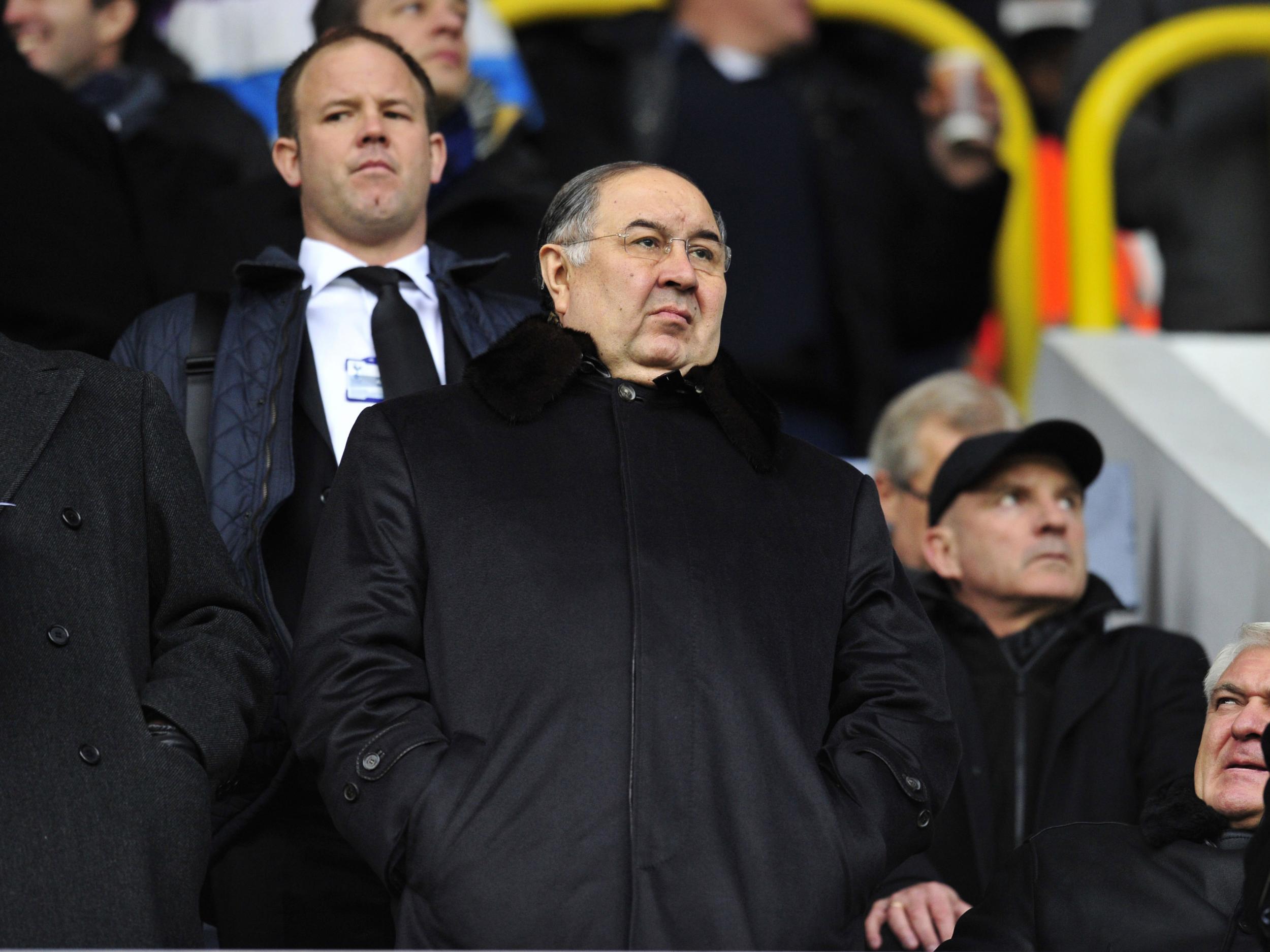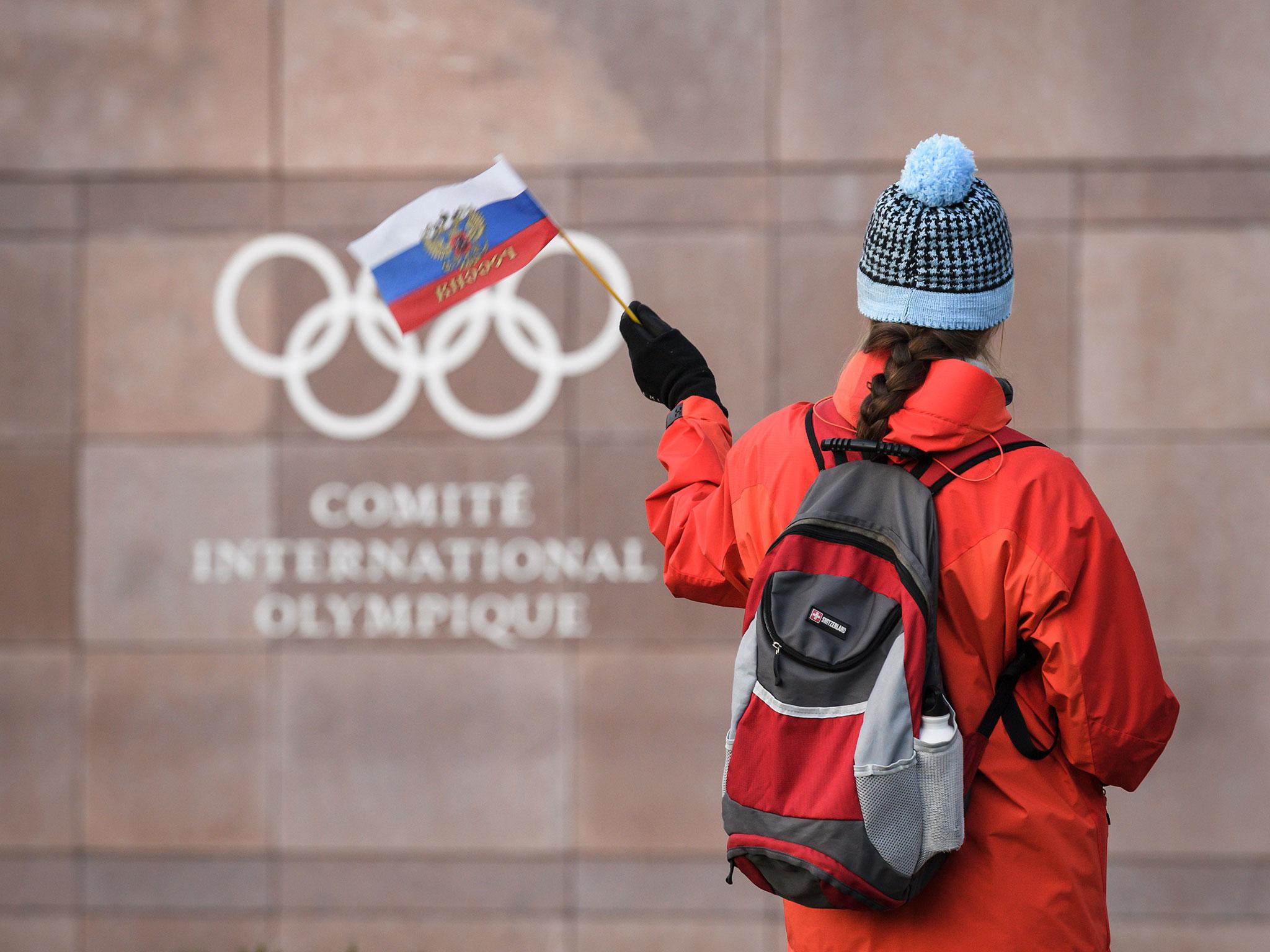Arsenal shareholder Alisher Usmanov writes to IOC pleading for Russian flag and national anthem ban to be lifted
Russian-Uzbek billionaire believes it is unfair on clean athletes competing at the Winter Olympics in Pyeongchang next February

Your support helps us to tell the story
From reproductive rights to climate change to Big Tech, The Independent is on the ground when the story is developing. Whether it's investigating the financials of Elon Musk's pro-Trump PAC or producing our latest documentary, 'The A Word', which shines a light on the American women fighting for reproductive rights, we know how important it is to parse out the facts from the messaging.
At such a critical moment in US history, we need reporters on the ground. Your donation allows us to keep sending journalists to speak to both sides of the story.
The Independent is trusted by Americans across the entire political spectrum. And unlike many other quality news outlets, we choose not to lock Americans out of our reporting and analysis with paywalls. We believe quality journalism should be available to everyone, paid for by those who can afford it.
Your support makes all the difference.Arsenal’s billionaire shareholder, Alisher Usmanov, has written a passionate letter to the International Olympic Committee to plead for the Russian flag and national anthem to be allowed at the Winter Olympics next year.
The IOC announced a ban on Tuesday on athletes competing under the Russian name as punishment for “flagrant cheating”, although clean competitors can compete under neutral status that will result in the IOC’s anthem being played during medal ceremonies and their flag being raised rather than the Russian tricolor.
The ruling triggered a mixed response, with the British Olympic Association supporting the ban while Russia expressed an overwhelming sense of injustice against athletes who have not tested positive for performance-enhancing drugs, despite evidence of a state-sponsored doping programme.
Russian-Uzbek businessman Usmanov, who holds nearly 30 per cent of the Arsenal shares, is also the president of the International Fencing Federation, having competed for the former Uzbek Soviet Socialist Republic. The 64-year-old has used his position to write to the IOC’s president, Thomas Bach, pleading for the ban on the Russian flag and national anthem to be lifted because it does not meet what the Olympics stands for, providing the athletes competing are clear and have never taken performance-enhancing drugs.
“I am writing this letter not only as the President of the International Fencing Federation but primarily as a citizen of Russia, and someone for whom serving Olympic ideals has become one of the most important purposes of life,” Usmanov wrote.

“The whole world of sport and the entire Olympic family were waiting for the decision of the IOC. All have been eagerly anticipating fairness, justice and clarity. The decision answered all the questions but one – whether the Olympic Themis is fair.
“Even though discrimination in any shape or form contradicts the principles of the Olympic Movement, the IOC's decision certainly does put clean Russian athletes on an uneven playing field with athletes from other countries. Having gone through purgatory of the Olympic qualifications clean Russian athletes will (a) have to wait for months for the final decisions by the special commission of the IOC, (b) be deprived of the customary support of the NOC of Russia, and (c) most importantly be denied the right to see their national flag and hear their national anthem.
“One of the principles of Roman law states: “Nullem crimen, nullen poena sine culpa.” (“No guilt, no punishment”). The innocent shall not be punished and put down to knees. This approach violates the basic human rights and undermines the trust in law and justice. Athletes dedicate their rather short life in sport for this one moment when they can see their country’s flag in the sky and hear the sound of their national anthem. This is the pinnacle of their glory, their personal conquest of Everest.

“I ask the members of the IOC Executive Committee to balance on the scales of Themis the necessity to punish the guilty with the aspirations of clean Russian athletes and their equal rights as members of the Olympic family.
“Let us give the right at least to the winners of the 2018 Olympics to reach the summit of their dream and see the flag of their motherland in Pyeongchang’s sky.”
The Winter Olympics, which begin in February 2018, will be the second major global event to have banned Russian athletes from competing following the IAAF’s decision to suspend the nation from the World Athletics Championships last summer.
Join our commenting forum
Join thought-provoking conversations, follow other Independent readers and see their replies
Comments